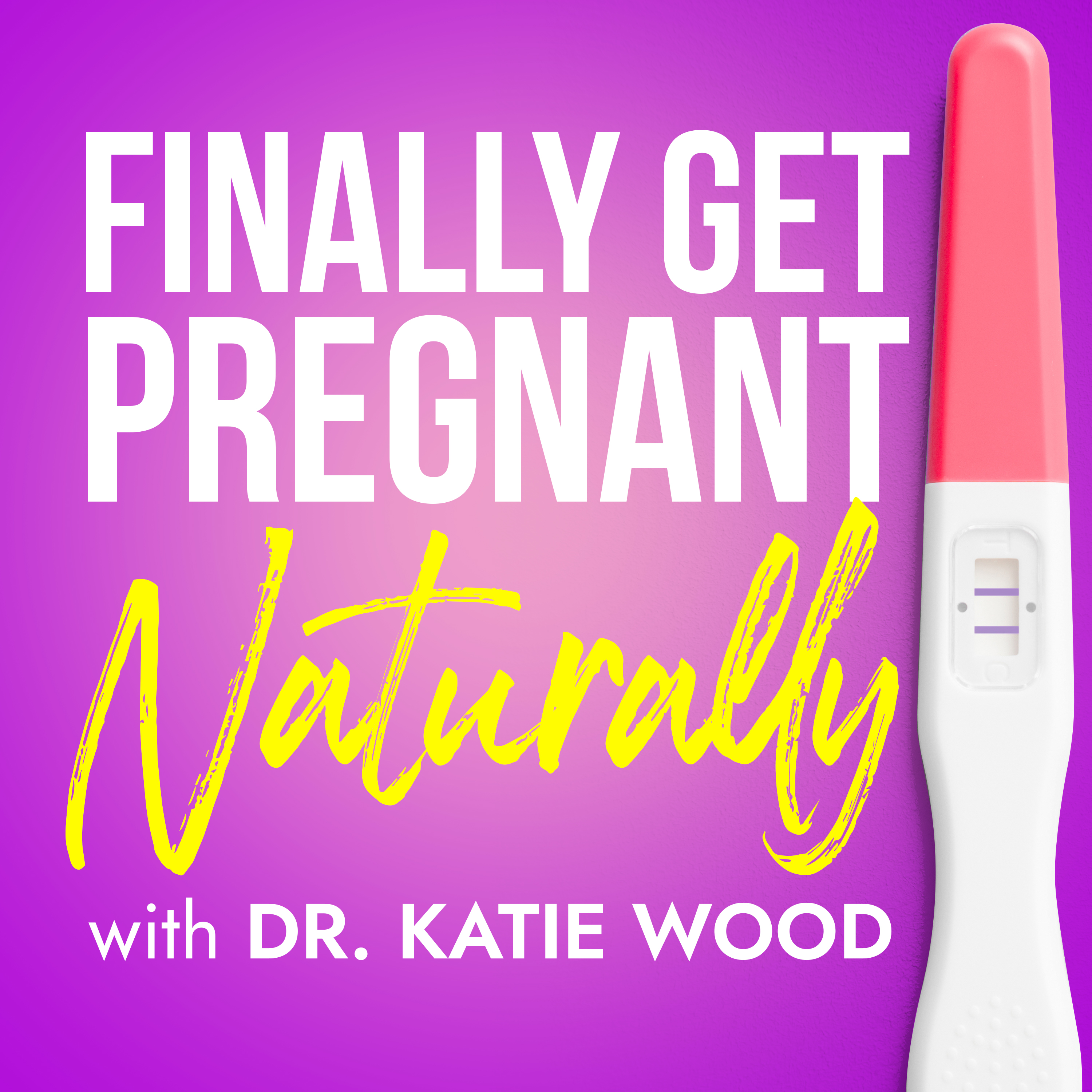Is Vitex really the “miracle hormone herb” for healing your hormones so you can get pregnant… or could it actually be making things worse?
If you've been seeing Vitex (Chaste Tree Berry) all over your feed, marketed as the ultimate fertility fix, you're not alone. In this episode, Dr. Katie Wood breaks down exactly what Vitex does in the body, who it can help, and—just as importantly—who should avoid it. If you're dealing with irregular cycles, low progesterone, or considering herbal support, this episode clears up the confusion and helps you avoid making symptoms worse.
In this episode, you'll...
– Understand how Vitex works on the brain-hormone connection to potentially support ovulation and progesterone
– Learn which fertility struggles may be helped (or worsened) by Vitex
– Discover why personalization and practitioner guidance are essential when adding herbs to your conception plan
Listen now to learn whether Vitex is a helpful tool or harmful trend for your fertility journey—and what to do instead to get pregnant naturally.
Take the Ultimate Fertility Blueprint Quiz HERE
Follow and connect with me on Instagram @the_wellness_pharmacist to fast-track your fertility so you can finally get and stay pregnant naturally!
What is Vitex?
Vitex, also known as Chaste Tree Berry, is an herbal remedy traditionally used to support menstrual and reproductive health. It's believed to interact with the hypothalamic-pituitary-ovarian axis, which is a key communication system for regulating hormones. Particularly, it's known for possibly supporting healthy progesterone levels by influencing luteinizing hormone (LH) and reducing excess prolactin. It’s often suggested for women dealing with luteal phase defects, short cycles, or irregular ovulation, and has been used for PMS, PMDD, or post-birth control regulation.
Can You Find Vitex in Food?
Unlike your everyday leafy greens or seeds, Vitex isn't something you can consume through a regular diet. It is typically taken as an herbal supplement, either in tincture or capsule form, and its effectiveness is attributed to specific plant compounds uniquely concentrated in these forms.
Not for Everyone
While Vitex is indeed powerful, it’s important to recognize its limits. If you have a regular cycle with no signs of progesterone deficiency, or if you have PCOS with elevated LH levels, Vitex may actually exacerbate hormonal imbalances. It can also cause side effects like headaches, mood swings, or disruption of the cycle in some cases. Furthermore, it can interfere with fertility treatments like IVF or egg retrieval protocols.
A Client's Story
Here’s a cautionary tale: One of my clients, suspecting PCOS, decided to try Vitex based on self-research. Unfortunately, it worsened her cycles until we could tailor a better solution together. Such incidents underline the importance of professional guidance in using herbal supplements.
A Mindful Approach
As an aspiring parent pursuing a conscious fertility journey, it’s essential to take a mindful, informed approach. Herbs like Vitex can be part of the healing picture but need professional guidance to ensure they're used correctly. The key takeaway is that natural does not equal neutral—potent herbal allies like Vitex require personalized assessment and not broad endorsements from blog posts or social media.
Conclusion: Trust Your Body, Honor Your Timing
In seeking to expand your family, don’t be swayed by trending miracle cures. Lay down your fertility foundations by listening deeply to your body's intelligence. If Vitex seems intriguing, consult with a fertility practitioner experienced in herbal medicine to decide its suitability for your specific needs. Until next time, remember to trust your body, honor your timing, and continue embracing your fertility journey with mindfulness and open-hearted patience.
Thank you for reading and for your engagement in this topic. For more such insights, tune into our podcast every Tuesday and Thursday, and may you find empowerment and clarity in your fertility journey.
Finally Get Pregnant Naturally is your go-to TTC podcast for holistic fertility support to help you get pregnant naturally by addressing the root cause of unexplained infertility, secondary infertility, and recurrent miscarriage. Hosted by Dr. Katie Wood, a pharmacist and holistic fertility practitioner, this show offers natural fertility solutions for those on a fertility journey struggling to conceive, navigating miscarriage, or dealing with endometriosis, PCOS, low sperm count, or failed IUI or failed IVF. Whether you're trying to conceive, increase egg quality, optimizing sperm health, or healing after a miscarriage, each episode delivers practical guidance to support your fertility journey. Learn how to improve fertility, balance hormones, regulate your fertile window, and conceive naturally through root cause healing, emotional wellness, and mind-body tools—because true fertility starts from within.
DISCLAIMER: By listening to this podcast, you agree not to use it as medical advice to treat any medical condition in either yourself or others. This podcast offers information to help the listener cooperate with physicians, mental health professionals or other healthcare providers in a mutual quest for optimal well-being. We advise listeners to carefully review and understand the ideas presented, and to consult your own physician for any medical issues that you may be having. Under no circumstances shall Pharm to Wellness LLC, any guests or contributors to the Finally Get Pregnant Naturally podcast, or any employees, associates, or affiliates of Pharm to Wellness LLC be responsible for damages arising from the use of the podcast. As an Amazon Associate, I earn from qualifying purchases.

Hi, I'm Katie
Host of Finally Get Pregnant Naturally Podcast

.png)